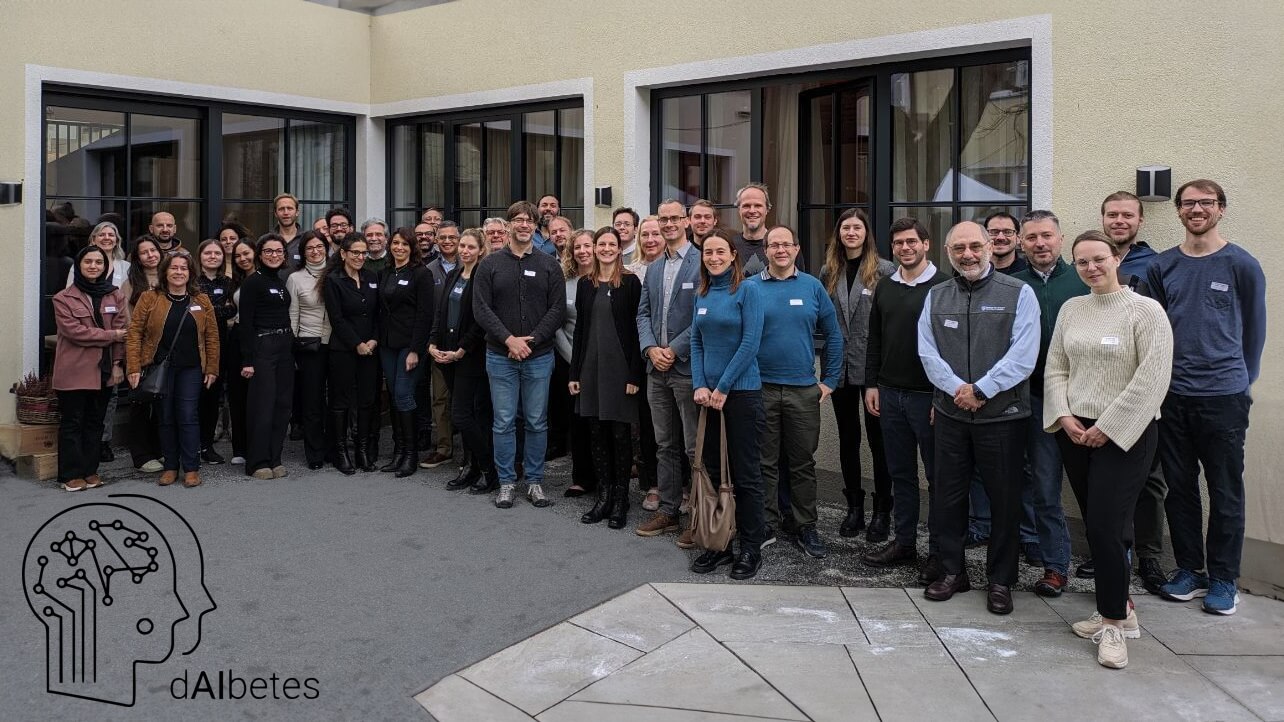Federated learning and diabetes research: Horizon project “dAIbetes” launched in Innsbruck with RI as project partner
The pioneering Horizon project “dAIbetes” was launched on 22 and 23 January 2024, when the project partners, led by Prof. Jan Baumbach from the University of Hamburg, gathered in Innsbruck (Austria) for the official kick-off-event. This EU-funded project brings together experts from around the world to take type 2 diabetes research to a new level by combining it with artificial intelligence approaches.
Focus on the challenge of type 2 diabetes
Type 2 diabetes afflicts nearly one in ten adults worldwide, making the development of personalised treatment approaches increasingly important. However, while healthcare providers are becoming increasingly effective at targeting diabetes risk factors (e.g. diet or physical exercise), no predictions as to the expected outcome for a given treatment for a specific patient exist.
Federated virtual twin models pave the way for data protection
The „dAIbetes“ project will explore the use of virtual twins as innovative prognostic tools for personalised disease management. However, as training these models is a data hungry endeavour and therefore falls directly within the scope of the General Data Protection Regulation (GDPR), the project will focus on more privacy-enhancing computational technologies such as federated learning. This is designed to enable the effective use of big data, while safeguarding sensitive patient data, which was demonstrated in the successful predecessor project FeatureCloud that has just been completed und which RI was also involved. The “dAIbetes” project thus builds on this technology to develop a federated health data platform for clinical application of the first internationally trained federated virtual twin models, with the primary objective of personalised outcome prediction of type 2 diabetes treatment.
Global consortium and project objectives
The consortium behind “dAIbetes” combines expertise in software development, artificial intelligence, cybersecurity and diabetes research and treatment. The Research Institute – Digital Human Rights Center plays an important role among the project partners, in particular with its expertise in data protection, conducting impact assessments, AI law and ethics.
The overall objective of the project is to develop a model for personalised outcome prediction of type 2 diabetes treatment while preserving privacy by incorporating all of these competences, thereby resolving the antagonism of privacy and big data in cross-national diabetes research.
Kick-off in Innsbruck: Jointly into the future of diabetes research
The project partners met in Innsbruck on 22 to 23 January 2024 for the official project kick-off. The two-day workshop was an important step towards the realisation of the project’s goals, as ideas were exchanged, intensively discussed and a common approach for a successful project implementation was developed. We look forward to a promising collaboration with all partner organisations and to making a significant contribution to this exciting field of research in the upcoming years.

